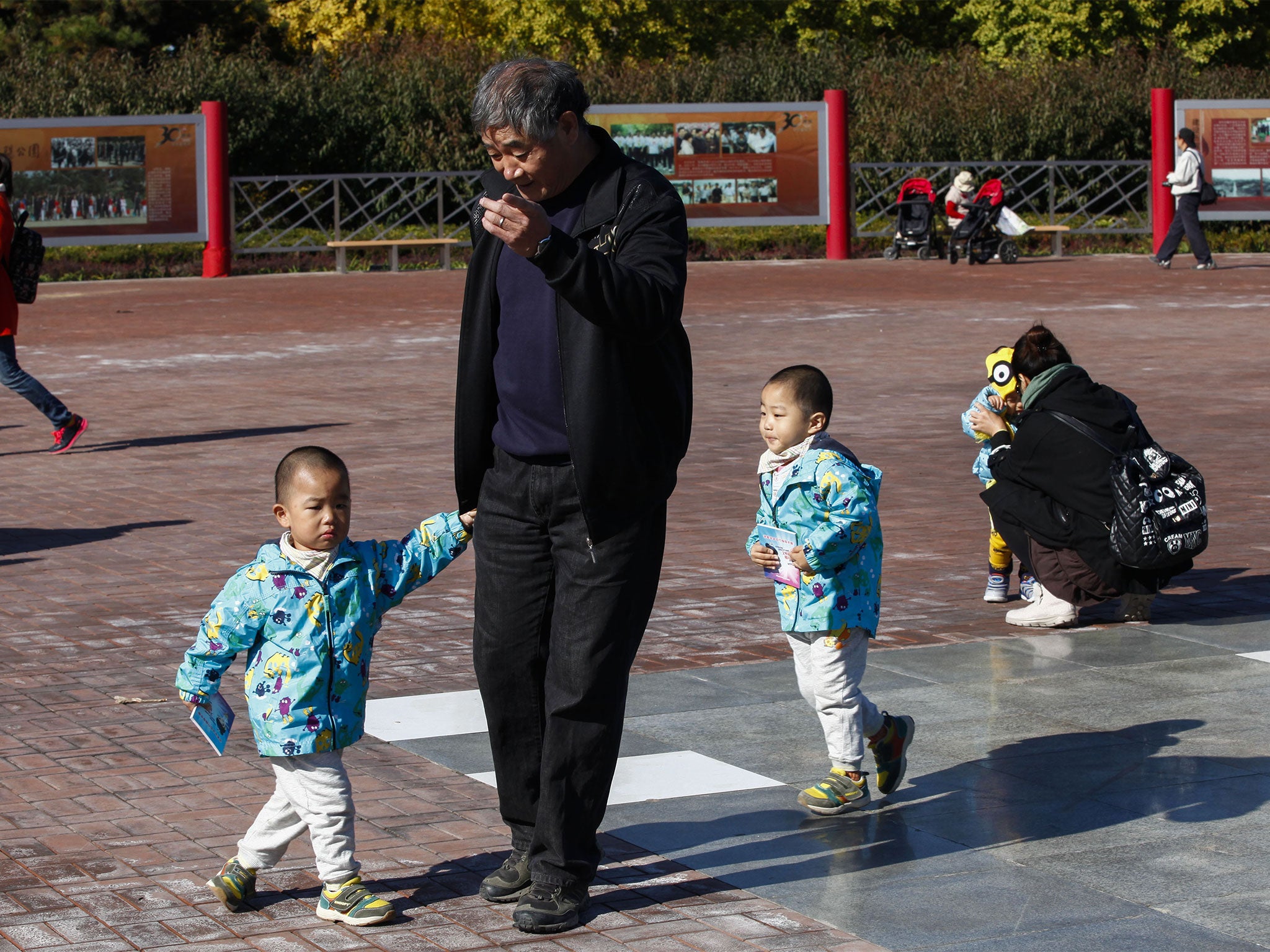China two-child policy shows ‘notable results’ with largest number of newborns since 2000
More than 18 million live births were recorded in China last year, two million more than the average of the previous five years

Support truly
independent journalism
Our mission is to deliver unbiased, fact-based reporting that holds power to account and exposes the truth.
Whether $5 or $50, every contribution counts.
Support us to deliver journalism without an agenda.

Louise Thomas
Editor
China’s two-child policy is showing “notable results” with the fertility rate expected to rise through to 2020, a senior health official said on Saturday.
Speaking to reporters on the sidelines of China’s annual meeting of parliament, Wang Peian, vice-minister of the National Health and Family Planning Commission said there were “notable results” in 2016, with the largest annual number of newborn babies since 2000.
Wang said 18.46 million live births were recorded last year, two million more than the average of the previous five years.
The total fertility rate also rose to 1.7 children per woman, compared to 1.5 to 1.6 per cent between 2000 and 2015, he added.
China introduced its controversial one-child policy in 1979 to limit population growth, but authorities are now concerned the country’s dwindling workforce will not be able to support an increasingly ageing population.
In 2015 China said it would allow all married couples to have two children, to address those concerns.
Wang said the rising trend will continue through to 2020, during which the annual number of newborns is expected to range between 17 million and 19 million.
“We are very optimistic,” he added.
China’s birth rate, one of the lowest in the world, has switched from being regarded as an achievement in response to concerns about over-population to becoming a source of anxiety for authorities worried about an ageing workforce.
Reuters
Subscribe to Independent Premium to bookmark this article
Want to bookmark your favourite articles and stories to read or reference later? Start your Independent Premium subscription today.
Join our commenting forum
Join thought-provoking conversations, follow other Independent readers and see their replies
Comments